Sustainability Reporting: Navigating AASB Compliance and ESG Goals
9 Apr 2025
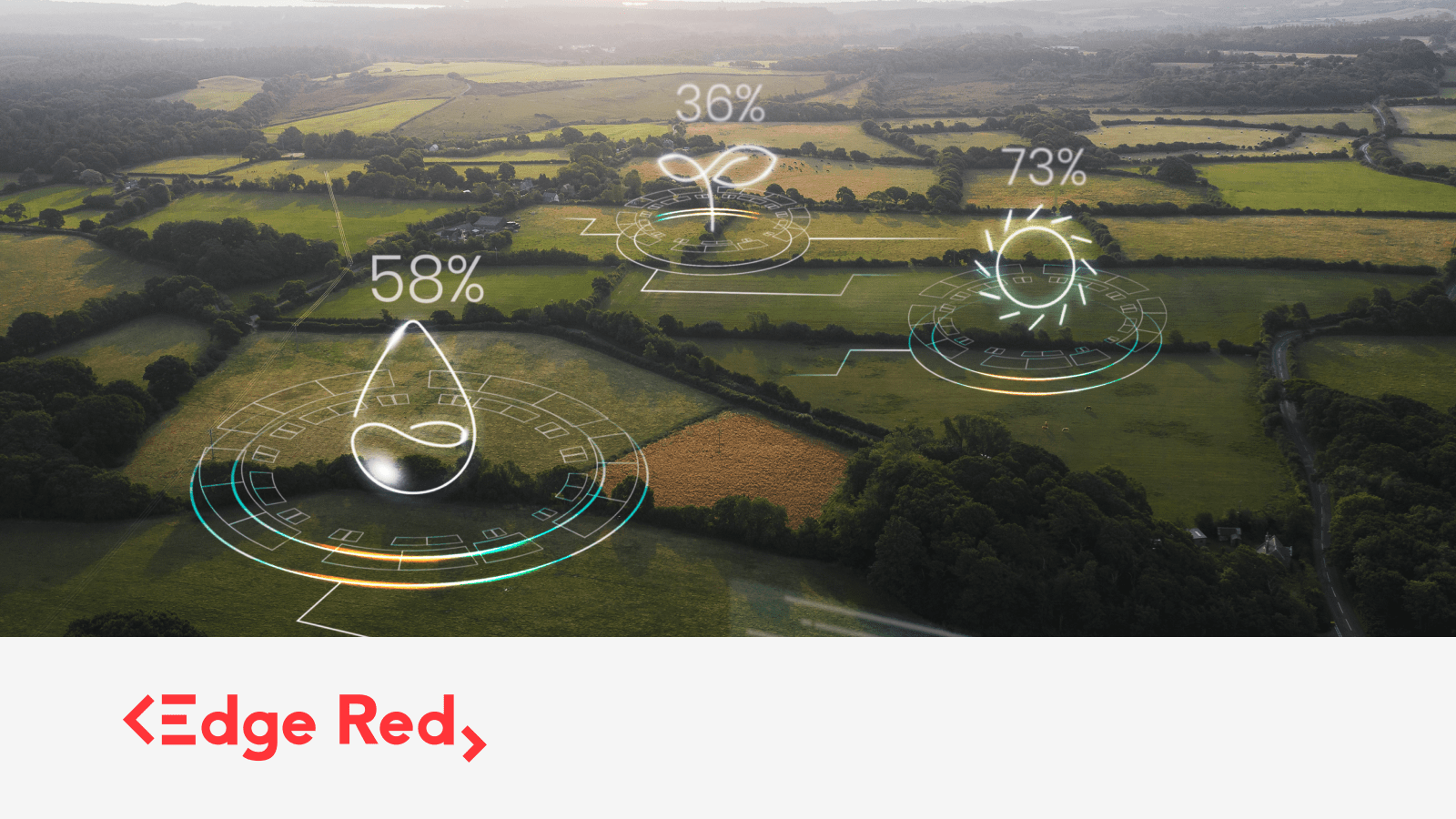
Sustainability has become a cornerstone of modern business operations. From regulatory compliance to customer expectations, businesses are under increasing pressure to demonstrate transparency in and accountability for their environmental impact, social impact, and governance (ESG) practices. In Australia, the Australian Accounting Standards Board (AASB) provides frameworks for disclosing sustainability-related financial information, helping organizations align with stakeholder demands and regulatory requirements.
In this blog, we’ll explore the essentials of sustainability reporting, what businesses need to do to comply, and how EdgeRed, powered by the intelligent capabilities of E.R.I.C.A., can support your journey.
What is sustainability reporting and why is it important?
Sustainability reporting involves disclosing how an organization manages its environmental, social, and economic impacts. It highlights efforts to mitigate risks, seize opportunities, and operate responsibly. Sustainability reporting is important because it promotes transparency, accountability, and informed decision-making among stakeholders, facilitating sustainable development and long-term value creation.
Starting January 2025, in Australia, as per ASSB requirements, every entity will be subject to two disclosures: AASB S1 General Requirements (voluntary) and AASB S2 Climate-related Disclosures (mandatory). The AASB S1 General Requirements standard assists companies in reporting sustainability-related risks and opportunities that influence their cash flow generation, capital management, and financing access over short, medium, and long-term periods. For a very current example, a widespread bird flu outbreak can cause an egg shortage, disrupting supply chains, increase input costs, and impact cash flow and capital planning Although voluntary, this standard provides an extensive framework aimed at helping financial report users make informed decisions. Conversely, the mandatory AASB S2 Climate-Related Disclosures standard specifically targets the reporting of climate-related risks and opportunities affecting financial outcomes and capital management. For instance, businesses may need to disclose the financial impacts of acute events like the 2019–20 Australian bushfires, which significantly affected the insurance industry, or chronic climate risks such as long-term global warming threatening the viability of traditional growing regions for crops like coffee and grapes.
Why it matters:
- Investor Confidence: Provides clarity on climate-related risks and opportunities.
- Operational Resilience: Identifies areas for efficiency and improvement.
- Reputation: Aligns with stakeholder values and builds trust.
What businesses need to do
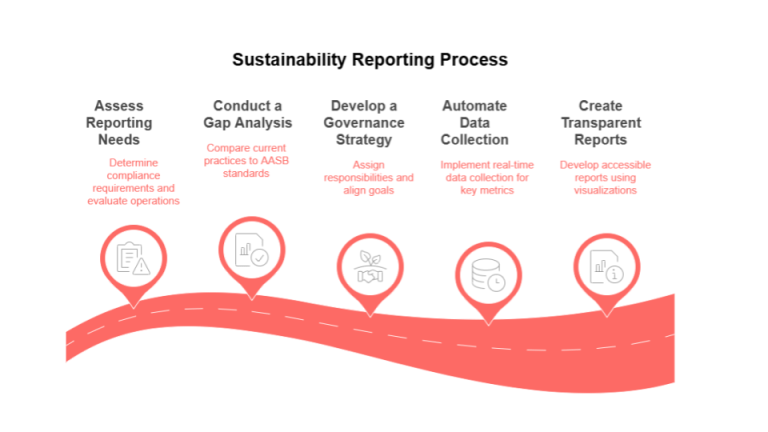
Complying with sustainability reporting standards might seem daunting, but a structured approach simplifies the process:
- Assess Reporting Needs
- Determine if you must comply with AASB S2 (mandatory for certain entities).
- Evaluate your operations against size thresholds and regulatory programs, such as the National Greenhouse and Energy Reporting (NGER) Act.
- Conduct a Gap Analysis
- Compare current practices to AASB requirements.
- Identify missing processes, such as data collection frameworks or governance structures.
- Develop a Governance Strategy
- Assign sustainability responsibilities to a dedicated team or committee.
- Build a roadmap linking sustainability goals to business objectives.
- Engage stakeholders to align priorities.
- Automate Data Collection
- Identify key sustainability metrics, such as greenhouse gas emissions and water usage.
- Ensure data is collected in real-time and validated to minimize errors.
- Create Transparent Reports
- Use visualizations to communicate data effectively.
- Ensure reports meet AASB standards and are accessible to all stakeholders.
Transformative Technologies in Sustainability Reporting
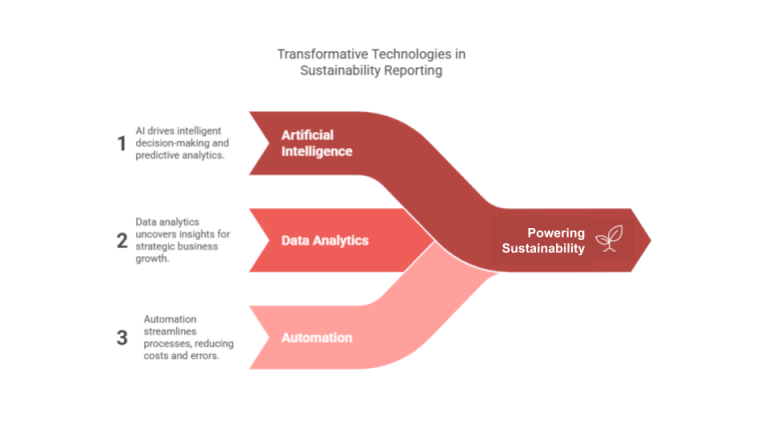
1. Artificial Intelligence (AI)
AI enhances sustainability reporting by analyzing extensive datasets, identifying patterns, and providing predictive insights.
- Natural Language Processing (NLP): AI-driven NLP tools interpret complex regulations, translating them into actionable compliance strategies.
- Predictive Analytics: Machine learning models forecast sustainability trends, enabling proactive decision-making.
- Anomaly Detection: AI monitors ESG data in real-time, flagging irregularities and compliance risks.
2. Data Analytics
Advanced data analytics provide actionable insights into ESG metrics, fostering informed decision-making.
- Centralized Dashboards: Interactive dashboards visualize performance across key sustainability indicators.
- Trend Analysis: Companies track year-over-year progress and benchmark against industry peers.
- Materiality Assessment: Data analytics identify material ESG issues affecting stakeholders and operations.
3. Automation
Automation streamlines data collection, processing, and reporting, reducing manual effort and errors.
- Streamlined Data Collection: Automated systems aggregate data from diverse sources consistently.
- Regulatory Adaptability: Automation platforms are designed to evolve with new reporting standards.
- Real-Time Reporting: Automated tools enable timely reporting, enhancing transparency.
How EdgeRed can help
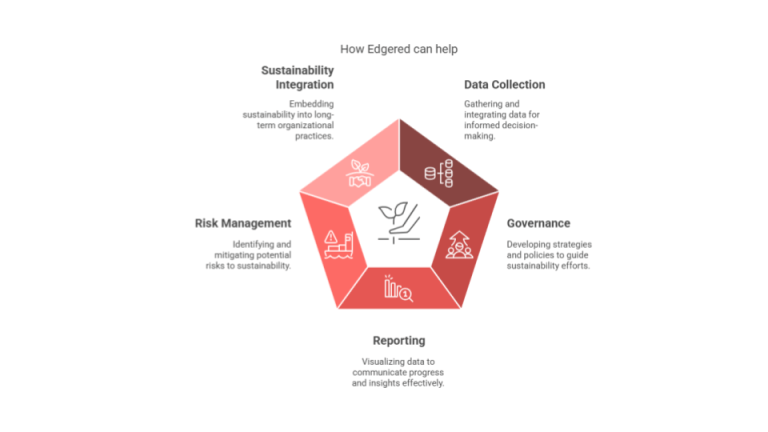
EdgeRed provides comprehensive solutions for navigating sustainability reporting, combining advanced analytics tools with the intelligence of E.R.I.C.A., our AI-driven assistant. Together, they simplify compliance and empower businesses to achieve their ESG goals.
1. Data Collection and Integration
- Custom Pipelines: Automate the collection and integration of sustainability data from IoT devices, Enterprise resource planning (ERP) systems, and more.
- Validation Tools: Use artificial intelligence (AI) to clean and standardize data, ensuring compliance.
- Real-Time Updates: Develop data extraction, transformation and loading (ETL) workflows to keep dashboards and reports current.
2. Governance and Strategy Development
- Stakeholder Sentiment Analysis: Leverage AI to analyze stakeholder priorities and refine strategies.
- Interactive Dashboards: Track governance KPIs, such as board diversity and policy adherence, in real-time.
- Scenario Modeling: Evaluate strategies for addressing climate risks and opportunities.
3. Reporting and Visualization
- Dynamic Reports: Build interactive, AASB-compliant reports.
- Templates: Provide pre-configured visualizations for quick deployment.
- Audit-Ready Features: Embed compliance checks to identify gaps before submission.
4. Risk Management
- Risk Analytics: Model the financial impacts of climate-related risks.
- Monitoring Dashboards: Track risks such as carbon pricing or supply chain disruptions.
- Scenario Planning: Simulate strategies to mitigate risks or capitalize on opportunities.
5. Long-Term Sustainability Integration
- Benchmarking Tools: Compare your performance against industry peers to identify strengths and opportunities for improvement.
- KPI Tracking: Develop tools to monitor long-term sustainability KPIs, such as carbon neutrality targets.
- AI-Driven Insights: Implement AI solutions to uncover inefficiencies in energy use, waste management, and resource allocation.
Meet E.R.I.C.A.: Your AI Sustainability Assistant
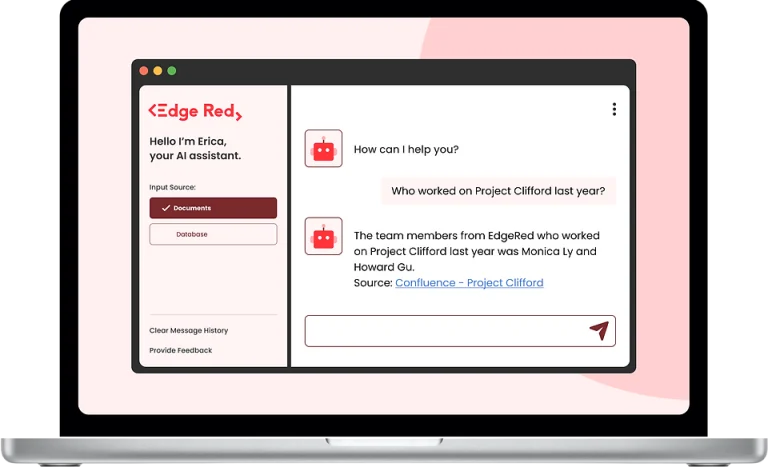
EdgeRed introduces E.R.I.C.A., our internal chatbot designed to streamline sustainability reporting. E.R.I.C.A. is your 24/7 virtual assistant for navigating AASB compliance and beyond.
How E.R.I.C.A. Can Help:
- Gap Analysis – E.R.I.C.A. helps identify areas where your business may fall short of AASB standards and suggests actionable improvements.
- Data Guidance – E.R.I.C.A. advises on the best practices for collecting, validating, and integrating data into your reporting workflows.
- Report Automation – Generate compliance-ready reports effortlessly with E.R.I.C.A.’s support for templates and real-time data visualizations.
- Risk Assessment – Use E.R.I.C.A. to model climate-related risks and opportunities, ensuring your business remains proactive.
- Scenario Insights – Explore “what-if” scenarios with E.R.I.C.A. to test the resilience of your sustainability strategies.
As sustainability practices evolve, EdgeRed ensures you stay ahead of the curve by leveraging the latest advancements in technology:
- AI-Driven Validation: Use machine learning to improve the accuracy and efficiency of sustainability analysis and reporting.
- IoT Integration: Incorporate addressable IoT sensors to track emissions and enhance operational efficiency.
- Sustainability Benchmarks: Compare performance with industry standards to identify opportunities for growth.
Closing Thoughts
The future of business belongs to organizations that view sustainability reporting not as a compliance burden, but as a strategic advantage. With the right approach and tools, your sustainability data can become one of your most valuable assets—revealing efficiency opportunities, strengthening stakeholder trust, and future-proofing your operations.
At EdgeRed, we’re redefining what’s possible in sustainability reporting. Our combination of cutting-edge technology and deep regulatory expertise helps transform complex requirements into clear business value. Whether you’re preparing for AASB compliance or looking to elevate your existing ESG program, we’re here to help you turn sustainability reporting from obligation to opportunity.
Ready to take the next step?
Contact us today to learn how EdgeRed and E.R.I.C.A. can transform your sustainability reporting process.
This blog was written by Natalie and Sai.
About EdgeRed
EdgeRed is an Australian boutique consultancy with expert data analytics and AI consultants in Sydney and Melbourne. We help businesses turn data into insights, driving faster and smarter decisions. Our team specialises in the modern data stack, using tools like Snowflake, dbt, Databricks, and Power BI to deliver scalable, seamless solutions. Whether you need augmented resources or full-scale execution, we’re here to support your team and unlock real business value.
Subscribe to our newsletter to receive our latest data analysis and reports directly to your inbox.



